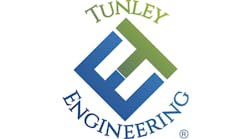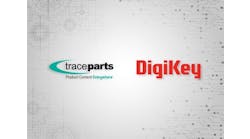William Beer is managing director at Tunley Engineering.
What are three key things that a machine builder, system integrator or manufacturer should know about your company?
William Beer, managing director, Tunley Engineering: We can almost certainly help to reduce design lead times. We can almost certainly help to reduce your carbon footprint. We can almost certainly help to improve the competency uptake of your engineering department.
What new technologies are driving your product development and why?
William Beer, managing director, Tunley Engineering: Collaborative technologies allow us to engage and work with customers more effectively, and systems that enable us to work with them on their systems are changing our service offering. For example, we are running recoveries simultaneously for companies on different continents remotely.
How does the Industrial Internet of Things figure in your business strategy?
William Beer, managing director, Tunley Engineering: Our assessments must include a review of collaborative integrations between packages. We see this in how business systems talk and communicate with each other. This impacts our business strategy as we must be ahead of our customers on the utilization of technology. Examples include removing the need to design by building product configurators; ultimately they can allow a customer to enter their parameters and automate the creation of schematics and general-arrangement drawings.
Almost every business will ultimately be impacted by the Industrial IoT. Tunley Engineering is no exception. As we help companies around the world to improve their design efficiency, we need to be ahead of the curve on IoT; for example, using URL sites to automate the creation of general-arrangement drawings is just one opportunity in which businesses can exploit advancing technologies to not just speed up engineering, but in some examples automate it. This can be achieved via parameter-driven modelling within most commercially available CAD packages.
How will machine automation and controls alter the way companies staff their operations in the future?
William Beer, managing director, Tunley Engineering: It used to be that growing a business was directly linked with company headcount; this is no longer the case. Business can become profit-creating machines while maintaining social corporate responsibilities without growing huge headcounts. We have found that our leanness has enabled us to react in the face of the pandemic very quickly. Machine learning is and will overtake person learning in certain fields. Machine automation and controls can design better, more quickly and more diversly without huge engineering departments while having significant control. We see this with the exploitation of part-data-management-system and CAD advancements. Soon drawings in the typical sense will become a thing of the past. Part-manufacturing information and synchronous-CAD technologies are speeding up design while increasing quality. As this field grows the demand on headcount will reduce.
How is the development of software solutions impacting your requirements for hardware?
William Beer, managing director, Tunley Engineering: As software transitions to cloud-based technologies, the demand on the applications moves offsite to the cloud, which means we can run complex business systems with mobile IT without the cost of huge power requirements. For example, we use Microsoft Surface, which are not the most powerful system, but it works great for us. Unfortunately there are still concerns over bandwidth for cloud-based part data management (PDM) systems due to the current size of CAD assemblies; a customer of ours chose a local server-based PDM system as a result.
As engineering and IT continue their convergence, which one is or will be leading the direction of future automation and technology at your organization?
William Beer, managing director, Tunley Engineering: IT is driving our business infrastructure, but engineering is growing our service development. Ultimately IT in itself needs engineering.
Looking into the future, how will technology change your company over the next five years?
William Beer, managing director, Tunley Engineering: Technology and IT are critical to the growth of our business. Starting at the beginning of a sales journey for us is IT and technology, all the way through to our delivery of service; consequently, technology is driving change, and our need to be ahead of change means we have to react, diverge and target improvements that the technology gives. Take, for example, sales: we can grow this faster with technology than with people. Consider music: most apps recommend artists and their songs based on your preferences . This is technology and AI; therefore, the artist’s growth in many cases can be attributed to AI, not just talent alone, although clearly talent helps.







